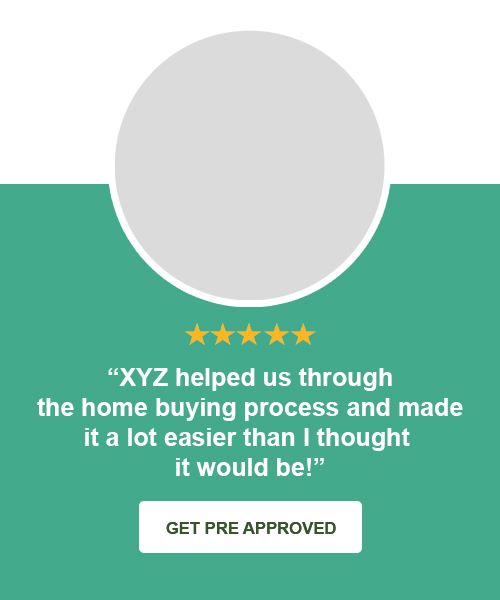
Understanding the process of obtaining a home loan with a co-borrower or co-signer
Jump To
Buying a house is an exciting and daunting experience. Obtaining a home loan can be even more overwhelming, especially if you are considering adding a co-borrower or co-signer to the process. Understanding the process of obtaining a home loan with a co-borrower or co-signer is essential in ensuring that you make the best decision for your financial situation. In this article, I will provide an overview of what you need to know about taking on a home loan with another person.
The first step in understanding the process of obtaining a home loan with another person is to understand what it means to have either a co-borrower or co-signer on the loan. A co-borrower is someone who has equal rights and responsibilities for the loan, while a co-signer only agrees to pay off the loan if the primary borrower fails to do so. Both are legally responsible for repaying the debt but have different levels of rights and obligations when it comes to making payments on the loan.
The second step in understanding how to obtain a home loan with another person is understanding how lenders view these types of loans. Lenders typically require both borrowers to meet certain criteria before they will approve them, such as having good credit scores and sufficient income or assets. By understanding these criteria, you can better prepare yourself for applying for a home loan with someone else.
In this article, I will provide an overview of what you need to know about taking on a home loan with another person so that you can make an informed decision about whether or not it’s right for you.
Overview Of Co-Borrowing & Co-Signing
When looking to obtain a home loan, there are a few options that you can consider. Co-borrowing and co-signing is one of them. Let’s take a closer look at what this entails!
Co-borrowing is when two people apply together for the same loan. The two borrowers share responsibility for repaying the loan, as well as any associated costs and fees. Co-signing is when one person agrees to be held responsible for the loan if the other person defaults on it. This means that both parties will be held liable if either one fails to meet their financial obligations.
So, how does this work? Generally speaking, both borrowers will need to fill out an application and provide proof of income and creditworthiness. This ensures that each borrower meets the lender’s requirements for obtaining the loan. Furthermore, lenders may require cosigners to sign documents stating that they are financially responsible for any amount not paid by the primary borrower(s). With this information in hand, lenders can then determine whether or not they are willing to approve the loan application.
Now we have a better understanding of what co-borrowing and co-signing involves, let’s move onto discussing some of the benefits associated with taking this approach when obtaining a home loan.
Benefits Of Co-Borrowing & Co-Signing
When thinking of taking out a home loan, it can be overwhelming. Not only is there the stress of obtaining the loan, but also the extra paperwork and legalities that come along with it. Co-borrowing and co-signing can make this process easier.
Co-signing or co-borrowing a home loan can have numerous benefits. The first benefit is that it allows someone with bad credit to obtain a loan they wouldn’t otherwise qualify for on their own. Even if your credit isn’t great, having a co-borrower or co-signer makes it much more likely you will receive the loan. It also helps to increase the amount you are able to borrow since your income combined with theirs makes for a larger potential loan amount than either could have gotten alone.
In addition, co-borrowing or co-signing gives you access to better interest rates which saves you money over time. Having two incomes can also help secure approval faster compared to a single income household as lenders feel more secure in knowing the payments are going to be reliable and consistent due to two incomes coming in every month.
The benefits of co-borrowing and co-signing are clear – it provides access to larger loans at lower interest rates while making approval more likely – however, there are still risks involved that need to be considered before entering into an agreement like this.
Risks Involved With Co-Borrowing & Co-Signing
The risks of co-borrowing and co-signing are worth considering. Both co-borrowers and co-signers are responsible for the full loan amount, even if only one person is making payments. If any borrower or signer fails to make payments, both parties will be held responsible for the debt. This could have a large negative impact on their credit score and ability to borrow in the future.
Additionally, if the other party fails to make payments on time, it can be difficult for the other person to take legal action against them. Co-borrowers and co-signers should also carefully consider how their financial situation may change in the future; if either party’s employment status or income changes significantly during the loan term, it may cause financial strain on both parties.
Given these risks, it’s important to enter into a co-borrowing or cosigning agreement with someone you know and trust. Before entering into such an agreement, both parties should understand all of the pre-approval requirements and how they will affect each person involved in the transaction.
Pre-Approval Requirements For Co-Borrowers & Co-Signers
So you’ve decided to take the plunge and get a home loan with a co-borrower or co-signer. You’re probably feeling a little overwhelmed, but don’t worry – we’re here to guide you through it, step by step. Let’s dive into the pre-approval requirements for both parties.
Before you can even think about starting the process of getting your home loan approved, there are certain steps that need to be taken first. Think of it like preparing for a marathon: once you’ve laced up your running shoes and done some warmups, you can start running and make your way to the finish line. Similarly, in order to secure a home loan with co-borrowers or co-signers, there are some requirements that must be satisfied before starting out on this journey.
Taking a deep breath and diving headfirst into this process is not always the best approach—it pays off to be well prepared beforehand! Gather all the required documents from both parties and make sure their credit scores meet the bank’s minimum criteria. This will save time in the long run and put you one step closer to owning your dream home. Now that we have got all our ducks in a row, let’s discuss types of home loans available for co-borrowers & co-signers!
Types Of Home Loans Available For Co-Borrowers & Co-Signers
When it comes to applying for a home loan with a co-borrower or co-signer, there are different types of loans available. This section will explore the various options so you can understand which type best fits your individual needs.
First, let’s look at the government-backed FHA loan. This type of loan is insured by the Federal Housing Administration and offers borrowers more lenient credit requirements than traditional lenders, so it’s a great option if you have bad credit. Other advantages include lower down payments and closing costs than most conventional loans.
Next, let’s consider VA loans, which are backed by the Department of Veterans Affairs and offered to active duty military members and veterans as an incentive for their service. Some of the perks include no down payment requirement, low interest rates, and no private mortgage insurance premiums.
For those who want to keep their mortgage payments low over time, adjustable-rate mortgages (ARMs) may be worth considering. With this type of loan, your monthly payment fluctuates based on market conditions but generally starts off lower than fixed-rate mortgages.
Finally, there are also jumbo loans available to those looking for higher loan amounts than what is typically offered through traditional lenders – these come with higher interest rates but can be helpful for folks who need extra funds for their home purchase.
It’s important to carefully weigh all your options when it comes to selecting a home loan that works best for you and your co-borrower or cosigner. Now that we’ve explored the types of loans available, let’s next look at credit score requirements for co-borrowers & co-signers to ensure you’re making an informed decision about your home purchase.
Credit Score Requirements For Co-Borrowers & Co-Signers
When it comes to securing a home loan with a co-borrower or co-signer, there’s a lot to consider. And one of the most important factors is credit score requirements. So let’s take a look at what you need to know.
It goes without saying that your credit score can make or break your chances of getting approved for a loan. Even if you have someone else on board to help, lenders will still be looking at each applicant’s individual score. This means that both co-borrowers and co-signers must meet the lender’s minimum requirement in order to qualify for the loan. It also means that one person’s poor credit rating could leave you unable to get approval, no matter how good your partner’s score might be.
The best way to prepare for this step is by checking each other’s credit reports beforehand. That way, if there are any issues that need addressing, you can start working on them well before submitting an application. If everything looks good and both parties’ scores meet the lender’s criteria, then you’re ready to move on to the next phase – down payment & closing costs for co-borrowers & co-signers.
Down Payment & Closing Costs For Co-Borrowers & Co-Signers
Getting a home loan with a co-borrower or co-signer can feel like wading through treacle; there are so many steps to go through. But, if you know what to expect, the process can become much smoother. In this section, we’ll discuss the down payment and closing costs for co-borrowers and co-signers.
When it comes to down payments, they need to be paid by whoever is taking out the mortgage. Co-borrowers will each be expected to make a contribution towards the down payment. For example, if two people are taking out a loan together, then they may both contribute half of the required amount. Co-signers don’t usually need to make any payments; their role is more about providing additional financial information and support but not money.
Closing costs will also need to be paid by whoever is taking out the loan; again this will typically be split between all of the co-borrowers involved in the transaction. Closing costs include things like appraisal fees and title insurance premiums. They may also cover legal expenses and other administrative services needed for closing on the loan. It’s important to remember that these costs will vary depending on your location and other factors, so you should speak to your lender for more information about exactly what you’ll need to pay for in order to complete your mortgage application successfully.
With that said, it’s time now to move onto discussing the documents and information requirements for co-borrowers and co-signers in order to complete their home loan application process.
Document & Information Requirements For Co-Borrowers & Co-Signers
When you are getting a home loan with a co-borrower or co-signer, the process doesn’t end with down payment and closing costs. There is still plenty of paperwork and information that needs to be given in order to finish the process. Everyone involved will need to provide documentation from their side, so it’s important to know what you are expected to bring before beginning the process.
Information such as income, current employment status, credit score, and proof of identity will be needed from both parties. Tax returns must also be provided for all parties involved in the loan application process. Depending on which type of mortgage you are applying for, additional documents may be required as well. It’s important to research what specific documents lenders require in advance so that there aren’t any last minute hiccups when finishing up your application.
TIP: Be sure to check with your lender if there are any additional requirements they need before submitting your loan application! This can help save time and make sure all necessary documents have been gathered prior to submission. When gathering all of your information together, remember that timelines vary depending on whether you have a co-borrower or co-signer present during the home loan application process.
Timelines For Home Loan Applications With Co-Borrowers & Co-Signers
So, you’re now aware of the document and information requirements for co-borrowers and co-signers when applying for a home loan. The next step is to understand the timelines associated with this process.
Typically, it takes anywhere from 30 to 45 days for the entire process to be completed when you have a co-borrower or co-signer involved. This timeline can vary based on several factors such as:
- The complexity of the application
- The number of forms that need to be filled out
- How quickly all of the required documents are submitted
- The current housing market conditions
- Changes in interest rates
- Local regulations and policies in place
It’s important to keep in mind that although you will have some understanding of how long the process will take, there may be unforeseen delays due to certain circumstances outside of your control. That’s why it pays to stay informed about changes in the housing market so you can plan accordingly. With this knowledge, you can make more informed decisions about when to apply and if necessary, revise your expectations accordingly.
Tips For Improving Your Chances Of Approval With Co-Borrowers & Co-Signers
It’s a common scenario: you want to apply for a home loan, but your income isn’t enough to qualify. That’s when it pays to have a co-borrower or co-signer on board. But what can you do to improve your chances of getting approved? Here are some tips and tricks that could help you get the home loan you need.
Firstly, it’s important to note that applying with a co-borrower or co-signer is no guarantee of success – for either of you. But there are things you can do to tip the scales in your favor. Like any endeavor, preparation is key; gathering all the paperwork and documents needed beforehand will make sure your application goes as smoothly as possible. Here’s a handy checklist:
- Copies of IDs
- Proof of residence
- Pay stubs & other proof of income
- Bank statements & assets
- Credit reports & scores
Having all these documents ready will show lenders that you mean business, and that could be just the edge you need for success. You should also ensure that both parties involved have favorable credit scores, because this can increase your chance of approval drastically. Working with an experienced loan officer is also highly recommended – they can help guide your application through the process, ensuring everything is done properly and on time.
So don’t give up if it looks like the odds are stacked against you! With the right preparation, planning and expertise, getting approved for a home loan with a co-borrower or co-signer is certainly achievable.
Conclusion
Obtaining a home loan with a co-borrower or co-signer can seem like an intimidating process, but it doesn’t have to be. Knowing the differences between a co-borrower and a co-signer, understanding what happens in the case of default, and being aware of the tax implications are all important steps that need to be taken into consideration before applying for a loan.
It is also important to research any restrictions on the type of homes you may purchase with a co-borrower or cosigner through sites such as Home Mortgage Guides. All of these factors should be discussed in detail with your loan officer to ensure that you understand exactly how this process will work.
Overall, obtaining a home loan with a co-borrower or co-signer is an important decision that requires careful consideration. Are you ready to take the next step towards owning your dream home?
FAQs
What Are The Differences Between A Co-Borrower And A Co-Signer?
When it comes to obtaining a home loan, it’s easy to get confused with the intricate details of co-borrower versus co-signer. It’s ironic because, in a way, both have the same purpose – that is, to help you obtain the loan. But boy oh boy, if you thought getting a loan was complicated enough, this just adds an extra layer of confusion.
So what are the differences between a co-borrower and a co-signer? Well for starters, unlike a co-signer who guarantees the full payment of their debt if you fail to pay it back, a co-borrower is responsible for repaying only his or her share of the loan. Also, while both are legally obligated to repay the debt if necessary, only a co-borrower can actually benefit from owning or using whatever they’re purchasing with the loan. For example, if you’re buying a house with your partner and you take out a loan together as co-borrowers, then both of you will be able to enjoy living in that house and benefitting from owning it.
On the other hand, a co-signer won’t have any rights whatsoever when it comes to enjoying or using whatever has been purchased with the loan; they simply agree to be held financially accountable if payments are not made on time. So ultimately when deciding which route could be more beneficial for you and your financial situation, weigh up your options carefully as there are many factors involved – such as credit score and liability – that should be taken into consideration before making any decisions.
How Can I Determine If I Am Eligible To Co-Borrow Or Co-Sign?
It seems like every day, someone is asking about the differences between co-borrowing and co-signing for a home loan. But what about the eligibility of either one? If you’re looking to determine if you can co-borrow or co-sign on a loan with someone else, I’m here to help!
First up, let’s take a look at your credit score. This will play an important role in whether or not you can be approved as a borrower or signer on the loan. A good credit score is usually over 700 and is generally considered to be above average. Anything below that could mean that lenders aren’t willing to take the risk when it comes to lending money. So if your credit score isn’t up to par, there may be some extra work involved before you’re able to apply for a loan with somebody else.
Now let’s talk income level. Depending on where you live and how much money you make, lenders may want proof that you have enough income coming in each month in order for them to feel comfortable lending out money for the loan. You’ll also need to show proof of employment or other sources of income that demonstrate your ability to pay back the loan on time each month. Without this proof, it’s unlikely that lenders will approve your application for a home loan with another person.
So bottom line – if you want to apply for a home loan with someone else, make sure your credit score is up-to-date and that you have solid proof of income. With these two pieces of information, you’ll be well on your way towards successfully applying for a home loan with another person!
What Happens If The Co-Borrower Or Co-Signer Defaults On The Loan?
If the co-borrower or co-signer defaults on the loan, it could be a disaster for both parties. Defaulting on a loan means that payments are not made and this could have devastating consequences. Not only would this affect the main borrower’s credit score, but it could also ruin the relationship between them and the co-borrower or co-signer.
The problems that defaulting on a loan can cause are numerous and serious:
- Financial issues:
- Both parties may have to pay extra fees or penalties for missing payments.
- The bank or lender may impose additional interest rates on top of what was initially agreed upon.
- The lender may even take legal action against both borrowers if the loan is not paid off in full.
- Credit score issues:
- The main borrower’s credit score will likely drop significantly due to delinquencies on their record.
- The co-borrower or co-signer’s credit score will also be negatively affected as they were responsible for any missed payments.
- Relationship issues:
- Trust between both parties will be damaged and potentially broken beyond repair, making future collaborations difficult if not impossible.
The bottom line is that defaulting on a loan can have serious repercussions for everyone involved and should be avoided at all costs. It’s important to make sure you understand all terms and conditions before signing up for a home loan with a co-borrower or co-signer, so you can avoid such disasters as much as possible.
What Are The Tax Implications Of Being A Co-Borrower Or Co-Signer?
When considering a home loan with a co-borrower or co-signer, it’s important to understand the tax implications of this arrangement. Unfortunately, taxes can be complicated and often confusing – so it’s important to do your due diligence and consult a qualified tax professional.
The first thing to note is that when you are in a co-borrowership or cosignership arrangement, the IRS will treat all parties as owners of the property and their respective incomes will be taken into account for tax purposes. This means that each party must report all income they receive from the loan on their taxes. Additionally, if any portion of the loan is forgiven by the lender, taxes may also be owed on that amount.
Additionally, there may also be potential deductions available for mortgage interest payments made during the year. All parties involved in the loan should review their individual tax situation with a qualified CPA or tax advisor to determine whether any deductions apply in their particular case. It’s important to note that some deductions may not be available for all borrowers depending on circumstances such as income level or other factors.
When discussing taxes with your financial advisor, make sure to ask about any additional costs associated with being a co-borrower or cosigner – such as legal fees or closing costs – that you may need to include as well in order to properly file your taxes. Taking these steps now can help ensure you’re accurately accounting for all necessary expenses come tax season!
Are There Any Restrictions On The Types Of Homes I Can Purchase With A Co-Borrower Or Co-Signer?
When you are planning to buy a home with a co-borrower or co-signer, there are some restrictions that you need to be aware of. You may have heard about the tax implications and the other benefits, but it is important to understand what types of homes can be purchased before making any decisions.
The type of property that you buy with a co-borrower or co-signer will depend on the lender’s policies. Generally, lenders prefer to finance single family homes and condominiums, as these properties have a lower risk factor than other types of real estate. You may also be able to purchase townhouses or duplexes with your co-borrower or co-signer, but this will depend on the individual lender’s criteria.
In some cases, lenders may not be willing to finance luxury real estate such as vacation homes or high-end properties. Additionally, most lenders do not finance mobile homes and manufactured homes due to their higher risk factor and lower resale value. It is important to discuss all of these details with your loan officer before making any decisions about purchasing a home with a co-borrower or co-signer.
Get A Pre-Approval Today!

Home Mortgage Calculator


Leave a Reply